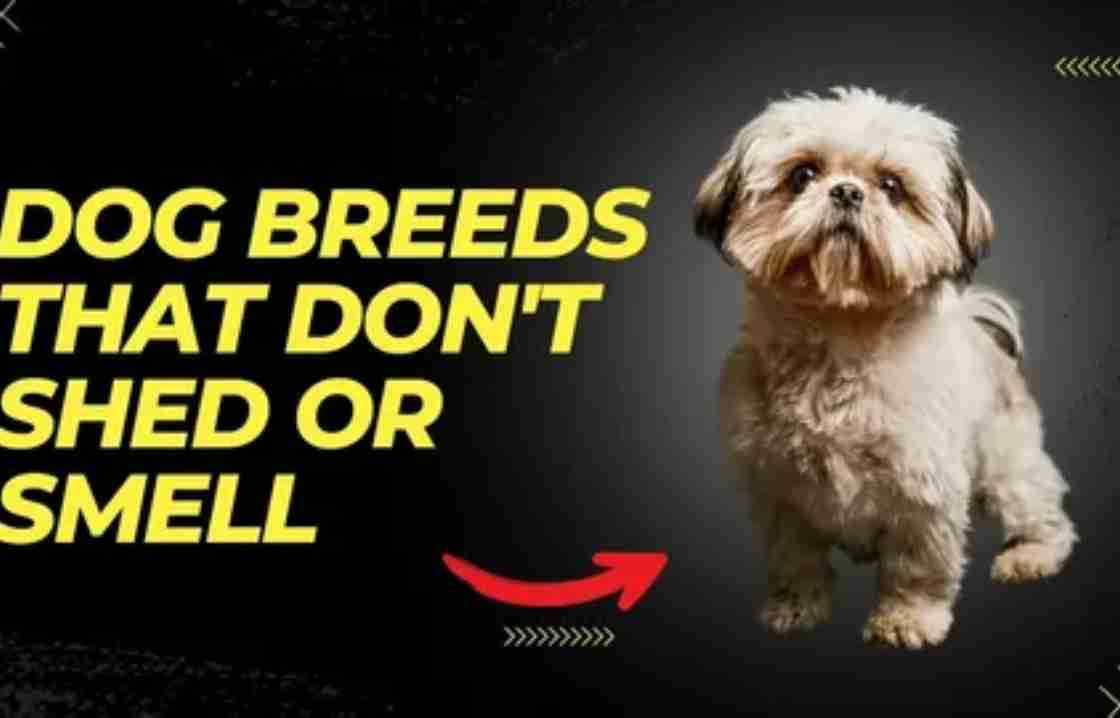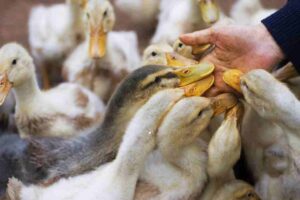If you’re considering adding a furry friend to your family, you may want to explore small dog breeds that don’t shed. These breeds offer the companionship and affection of a dog without the hassle of excessive shedding. This article will delve into various small dog breeds that are known for their low-shedding qualities, making them ideal for families, apartment dwellers, and allergy sufferers.
Understanding Shedding in Dogs

Before we dive into specific breeds, it’s important to understand why some dogs shed more than others. Shedding is a natural process that helps dogs get rid of old and damaged hair. However, the amount of shedding can vary significantly among breeds.
Factors Influencing Shedding
- Breed: Some breeds are genetically predisposed to shed more than others.
- Health: A dog’s health plays a role in their coat condition and shedding patterns.
- Season: Many dogs experience seasonal shedding, particularly during spring and fall.
Benefits of Choosing Low Shedding Dog Breeds

- Reduced Allergens: Low-shedding breeds produce fewer allergens, making them suitable for allergy sufferers.
- Less Cleanup: With less fur around the house, cleaning becomes easier and more manageable.
- Maintenance: Many low-shedding breeds have hair that requires regular grooming, which can be a bonding experience for you and your dog.
Top Small Dog Breeds That Don’t Shed

Here’s a table showcasing some of the most popular small dog breeds that don’t shed. Each breed has its unique characteristics, making them a wonderful addition to any home.
| Dog Breed | Size (Weight) | Lifespan | Temperament | Grooming Needs |
|---|---|---|---|---|
| Poodle (Toy) | 4-6 pounds | 12-15 years | Intelligent, Energetic | Regular grooming required |
| Maltese | 4-7 pounds | 12-15 years | Playful, Affectionate | Daily brushing needed |
| Shih Tzu | 9-16 pounds | 10-16 years | Friendly, Outgoing | Regular grooming required |
| Bichon Frise | 10-20 pounds | 12-15 years | Cheerful, Playful | Regular grooming needed |
| Yorkshire Terrier | 4-7 pounds | 13-16 years | Spirited, Brave | Regular grooming needed |
| Schnauzer (Miniature) | 11-20 pounds | 12-15 years | Alert, Friendly | Regular grooming required |
| Italian Greyhound | 7-14 pounds | 12-15 years | Affectionate, Playful | Minimal grooming needed |
| Coton de Tulear | 8-15 pounds | 14-16 years | Gentle, Affectionate | Regular grooming required |
Poodle (Toy)
Toy Poodles are one of the most intelligent dog breeds, making them easy to train. They have a curly coat that doesn’t shed much, which helps them stand out as one of the best small dog breeds that don’t shed. Regular grooming is needed to maintain their coat and prevent matting.
Maltese
The Maltese is known for its long, flowing white coat and affectionate nature. This breed is playful and great with children, making it an excellent family pet. Despite their beautiful coat, they are considered low-shedding, and daily brushing can help keep their fur in top condition.
Shih Tzu
The Shih Tzu is a friendly and outgoing small dogs that dont shed breed that thrives on companionship. They have a luxurious coat that requires regular grooming but produces minimal shedding. This makes them a great choice for those looking for small dog breeds that don’t shed.
Bichon Frise
With their cheerful disposition, the Bichon Frise is a popular choice among families. Their soft, curly coat is hypoallergenic and does not shed much. Regular grooming is essential to keep their coat healthy and prevent tangles.
Yorkshire Terrier
The Yorkshire Terrier, or Yorkie, is a spirited and brave little dog. Their fine, silky coat requires regular grooming, but it doesn’t shed significantly sultan chicken beautifully. Yorkies are small in size but big in personality, making them perfect companions.
Schnauzer (Miniature)
Miniature Schnauzers are alert and friendly, making them excellent watchdogs and companions. Their wiry coat is low-shedding, and regular grooming maine coon kittens in florida is necessary to maintain their distinctive look.
Italian Greyhound
The Italian Greyhound is a graceful and affectionate breed that is easy to care for. They have a short coat that requires minimal grooming and sheds very little. This breed is perfect for those who want a loving pet without the hassle of excessive shedding.
Coton de Tulear
Known for their playful and gentle nature, the Coton de Tulear has a soft, cotton-like coat that is low-shedding. Regular grooming is necessary to keep their coat looking its best, but they are generally easy to care for.
Grooming Tips for Low-Shedding Breeds
While small dog breeds that don’t shed produce less fur, they still require regular grooming to maintain their coats and overall health. Here are some grooming tips:
- Regular Brushing: Depending on the breed, brushing may be needed daily or weekly to prevent matting and keep the coat healthy.
- Bathing: Bathe your dog as needed, but avoid over-bathing, as it can strip natural oils from their skin.
- Professional Grooming: Consider scheduling regular grooming appointments with a professional groomer, especially for breeds with longer hair.
- Nail Trimming: Regularly trim your dog’s nails to prevent discomfort and injury.
- Dental Care: Provide dental chews or brush your dog’s teeth regularly to maintain oral health.
Common Health Issues in Small Dog Breeds
While many small dog breeds are generally healthy, they can be prone to specific health issues. Here’s a table outlining some common health concerns:
| Dog Breed | Common Health Issues |
|---|---|
| Poodle (Toy) | Hip dysplasia, eye disorders |
| Maltese | Dental problems, patellar luxation |
| Shih Tzu | Eye issues, breathing problems |
| Bichon Frise | Allergies, skin conditions |
| Yorkshire Terrier | Dental issues, patellar luxation |
| Schnauzer (Miniature) | Skin allergies, pancreatitis |
| Italian Greyhound | Hip dysplasia, dental issues |
| Coton de Tulear | Ear infections, skin allergies |
Regular Vet Check-ups
Regular veterinary check-ups are essential for maintaining the health of your small dog. Annual examinations can help detect potential health issues early, ensuring your pet receives the best care possible.
Conclusion
Choosing the right companion for your home can be challenging, especially if you’re looking for small dog breeds that don’t shed. Each breed mentioned in this article offers unique qualities and characteristics that can enrich your life. By understanding their needs and grooming requirements, you can ensure a happy and healthy life for your new furry friend.
- Male Black Widow Spider Markings - March 23, 2025
- Mexican Red Headed Bird: A Brilliant Avian Wonder - January 16, 2025
- Can Turkeys Eat Bread? - January 15, 2025








